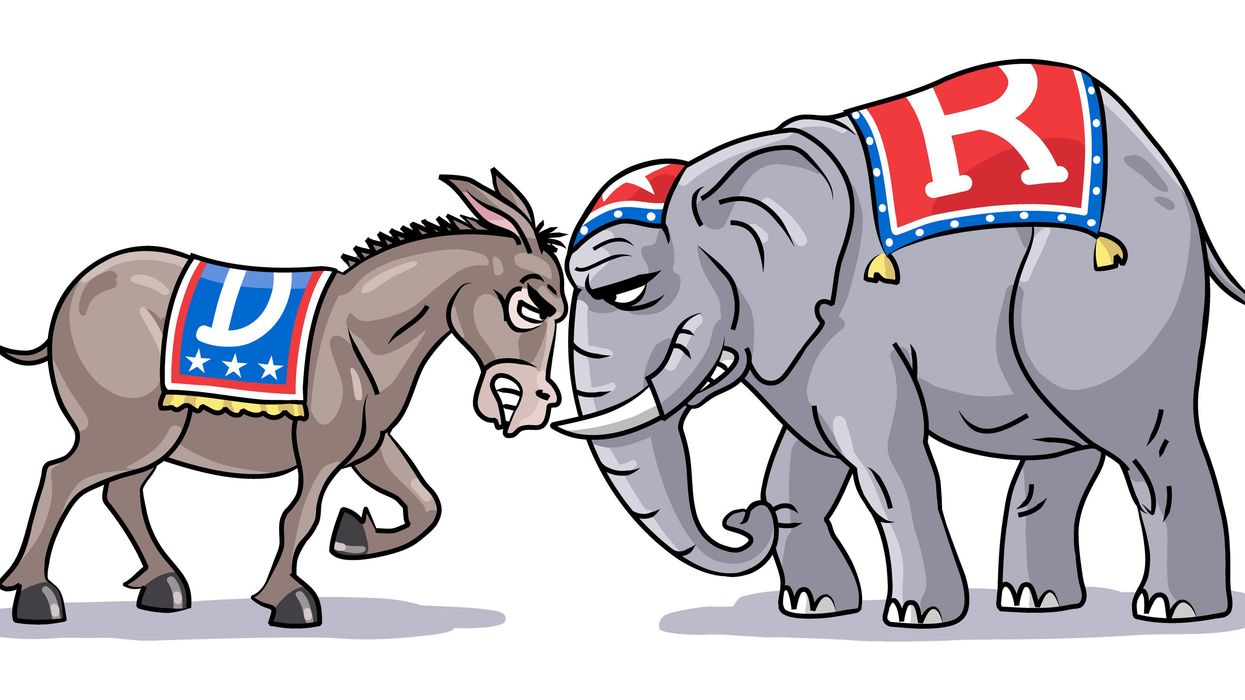Nevins is co-publisher of The Fulcrum and co-founder and board chairman of the Bridge Alliance Education Fund.
Once again, the suffocating partisanship that most Americans abhor is on display as we approach the November elections.
We are already witnessing the accusations and innuendos, the misinformation and vilifying of one candidate by the other as both the left and the right employ tactics and game plans detrimental to democracy.
I am appalled but not surprised as I watch the behaviors of the candidates posturing against each other with twisted facts and vitriolic disdain, solely to win the sacred trust of the electorate.
As citizens we should be asking ourselves, "Is this particular behavior in any way addressing the critical issues facing our country?" Obviously, we are not, otherwise those running for office wouldn’t rely on the same misleading rhetoric, and the extreme polarizing antics lacking any sense of decency that apparently are so effective.
Take the race for Senate in Pennsylvania, a key swing state. While Republican Mehmet Oz has been criticizing his Democrat opponent, John Fetterman, for his unsophisticated appearance in hoodie sweatshirts rather than focus on important issues. Recently he’s been running ads that depict Fetterman as a slovenly “basement bum.” Fetterman has returned the favor by mocking Dr. Oz for wearing “Gucci loafers and saying he wouldn’t last two hours in his Pennsylvania rural hometown.”
And amazingly they both proudly admit they approve these messages.
And in Wisconsin, Republican Sen. Ron Johnson deflected criticism of his previous statements downplaying the Jan. 6, 2021, insurrection by saying. “The armed insurrectionists stayed within the rope lines in the Rotunda,” Johnson said. “I’m sorry — that’s not what an armed insurrection would look like. I don’t think they’d be able to reopen Congress about six hours later and complete the counting of electoral votes if there literally had been an ‘armed insurrection. So again, I realize that term has been used to inflame the situation.”
And the Democratic National Committee joined the political circus during the primaries by spending millions of dollars supporting extremist candidates in the Republican primaries, giving voice to election deniers and conspiracy theorists. Tactically this approach might prove to be successful, but it is certainly a morally questionable approach.
“It’s hard for Democrats to take the high road when they’re cynically boosting some of these candidates in order to try to gain an advantage in the general election,” said Richard Hasen, UCLA law professor and director of the Safeguarding Democracy Project. “That doesn’t mean that what Democrats are doing is as bad as what Republicans are doing, but it still makes it objectionable.”
As we watch bad behavior by candidates on both sides of the aisle let’s guard against the moral equivalency excuse so often used in debates. This approach draws comparisons between different, and often unrelated, things to argue that one is just as bad as the other (or not). Let us not justify the behavior of our candidate by saying it isn’t as bad as the behavior of the candidate we oppose.
As deplorable techniques will surely worsen the closer we get to Nov. 2 let us watch carefully.
Rather than address the critical issues facing our country, politicians will resort to negating the truth of a claim by pointing out an unrelated and negative characteristic or belief of the person supporting it. This technique is an attempt to undermine another's argument by attacking the person instead of tackling the issue (known as the Ad Hominem Fallacy).
Another often utilized technique that surely will be on display is the bandwagon fallacy. This fallacy is committed whenever one argues for an idea based upon an irrelevant appeal to its popularity. For example, on the issue of health care, Democrats like to argue that every developed nation in the world has universal health care, while Republicans take the position that a majority of Americans oppose health care reform. Neither assertion makes any effort to inform or educate the public on the facts.
Americans so easily fall prey to such deceptive political ploys, because (in part) human nature involves a tendency to embrace information that supports our beliefs, and to ignore or distort evidence contrary to our beliefs. Although understandable, this tendency can blind us from the facts and the truth.
And so, as you approach this election season, try to see through the charade. Attempt to understand the tactics of debate and expect more this time not only from the candidates but from your friends and most importantly perhaps from yourself. In addition to being on the alert for the ploys mentioned above, listen carefully for exaggeration and guilt by association. And don’t confuse correlation with causation. (Two things may be related, but not necessarily in a cause-and-effect way.)
Watch, listen, ponder and decide for yourself what you can do to correct the course of a political process that has become a war of opposing clans that value defeating the opposition over working constructively on behalf of all citizens.
Our national challenges and problems are earnest, urgent and serious. They are worthy of being debated in a manner consistent with our great history and heritage. If we choose to focus on what the issues are and how they can best be solved as we sift through the barrage of exaggeration, innuendo and half-truths pressing into the political fray, we just might find ourselves closer to the truth and to each other than we could ever imagine.
My next writing will focus on the process needed for creating a movement of millions of Americans to change the incentives needed to protect, defend and enhance democracy in America. Politicians, just like the rest of us, respond to incentives. Therefore, it is imperative that incentives be developed and implemented that encourage productive dialogue and promote responsible decision-making. It is critical that we start electing stewards who are willing to put country before party.




















